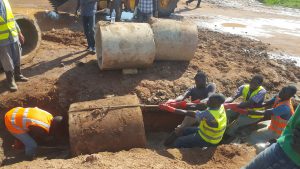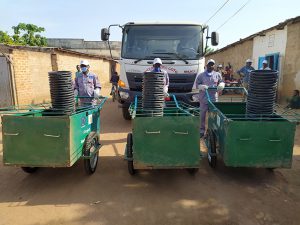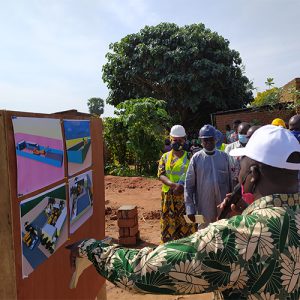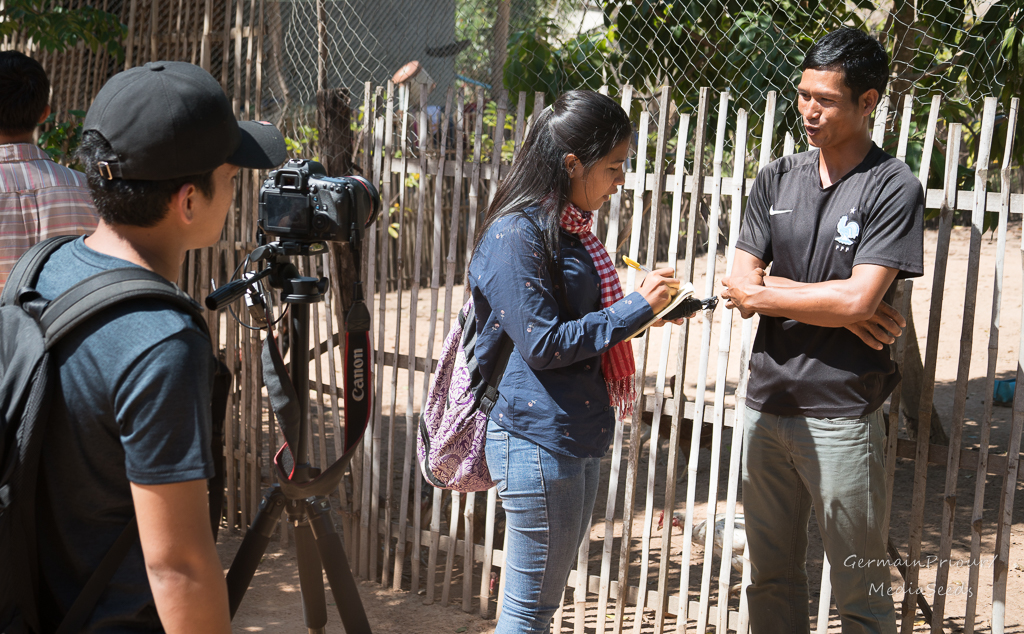In the south of Chad, the city of Moundou and its 200,000 inhabitants are affected by recurrent flooding in 50% of the urban area. Although the city has a substantial drainage network, it can no longer function correctly.
As part of the project to fight against flooding in Moundou (PLIM), launched in 2018, NGO Initiative Développement and GRET are providing technical assistance to the city of Moundou to improve its sanitation network. This project aims to make the urban drainage system functional. To do this, it must ensure that the municipality is able to annually clean gutters and implement a waste collection and evacuation system for the city. “Obstruction of gutters is a source of water stagnation, waste putrefaction and street blockages, generating numerous impacts on inhabitants’ health and the city’s economy”, explains Frédéric David, project manager with GRET.

After three years of project implementation, diagnoses and strategies for management of these two environmental services were developed, and are now enabling the municipality to plan decongestion of the main gutters and to implement a pilot waste management service. 27 kilometres of gutters were freed up over three years, 48 underground passages were developed, and 114 new structures were installed. These great results are mainly due to the mobilisation of the municipality’s technical services, and to the neighbourhood sanitation associations, which mobilised between 150 and 250 men and women every year.
In parallel, a 12 m³ dump truck was deployed, 7,820 bins were purchased and 50 units of pre-collection equipment (overalls, gloves, safety footwear, spades, picks and carts) were provided to the towns’ pre-collection operators. Studies for the development of two areas for household waste transit were also conducted and the companies were selected by the municipality to provide the services. The first stone for these transit areas was laid on 28 October last, with the city’s main authorities in attendance. The service will ultimately enable thirteen central neighbourhoods in the city to be covered, from which waste will transit in the two areas designed for this purpose, before being evacuated to the final landfill. In addition, sorting will be carried out in the transit areas, enabling valorisation of some waste, such as plastics and metal.

With these actions and the communication campaigns conducted among populations, the commune was able to improve its image, inhabitants are now more inclined to use waste management services and illegal dumping of waste in the public space has decreased.
The next stages will consist of continuing extension of the waste management service, making related services viable, and continuing transfer of skills to the commune and the operators concerned.




